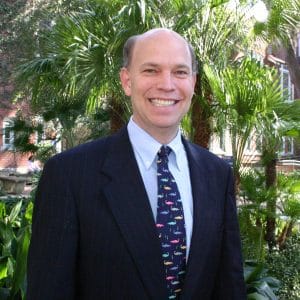Warrington in the News Articles: page 33
It’s no secret that Warrington faculty are internationally renowned for their innovative research. The media looks to our scholars for insights and impactful news. See below where our faculty are featured in the news.

Two bills, SB 620 (the Local Business Protection Act) and SB 280 (the Transparency Act), have sparked debate in the Florida Legislature as they are preemption bills that place state law ahead of local law. Both bills limit the authority of local governments and bolster the power of local businesses to protest local legislation through legal caveats.
Robert W. Emerson, Huber Hurst Professor, expressed some concerns with SB 260’s practicality.
Business-government Relations: Anything but Business?
Florida Political Review
Starting out with just a dream in his parents’ kitchen, David Habib‘s (BSBA ’14, MIB ’15) star has risen like a rocket in the food industry.
Sauce is the secret for young entrepreneur with an 'old soul'
Business Observer
Public Utility Research Center Director and Gunter Professor Mark Jamison explains why a rule that could increase the economic cost of shipping by rail that the U.S. Surface Transportation Board (STB) is considering is a bad idea.
Rail Regulators Should Heed the Lessons of Aggressive Telecom Rules
Real Clear Markets
Insights from Cordell Eminent Scholar Jay Ritter inform this story about yesterday’s hot startups having major IPOs, but they’re still losing lots of money—and it’s not clear when they will ever be profitable.
Is a vibe shift finally coming for VC-backed startups?
Fast Company
Doctor of Business Administration student and Clinical Assistant Professor of Accounting at Salisbury University David Weber shares insights for this story about federal regulators investigation into Bank of America for its role in administering government benefits under a California program that was plagued by fraud at the height of the COVID-19 pandemic.
Federal regulators scrutinize BofA for its response to California benefits fraud
American Banker
Clinical Professor Steve Tufts discusses his innovative “Adulting” class that is offered at Warrington, which goes over important topics like how to be wise with credit cards, how taxes work, insurance, mortgages, small business loans, leases, employee benefits, credit score, cost of capital, and more.
Steve Tufts and his innovative 'Adulting' class
Veronica Live
Of the 63 companies that went public through a SPAC deal last year and had less than $10 million in trailing sales at the time of their listing, at least 30 didn’t meet their projections, according to the Journal’s analysis of data provided by Jay Ritter, a University of Florida professor who studies public listings, and from FactSet. A total of 199 SPAC deals were completed last year.
SPAC Startups Made Lofty Promises. They Aren’t Working Out.
The Wall Street Journal
Meta has come under investigation by the Federal Trade Commission for supposedly anticompetitive conduct concerning the Oculus headset and App Store, despite the fact that virtual reality is still very new to the market and needs time to adapt to consumer demands. This can only mean trouble for the future of the metaverse. Public Utility Research Center Director and Gunter Professor Mark Jamison explains.
Meta and Oculus: Under the FTC’s watchful eye | IN 60 SECONDS
AEI
Wood’s been suffering because she’s not only on the wrong side of the trend but also dangerously leveraged to the riskiest and most glamorous of the go-go stocks, from Tesla to Coinbase to Robinhood.
“This is extreme loading of growth versus value,” says Cordell Eminent Scholar Jay Ritter, the University of Florida economist who’s the nation’s leading expert on IPOs.
Cathie Wood’s ARK portfolio is headed for a shipwreck—and plunging tech stocks aren’t even the worst of it
Fortune
Pacific Gas & Electric came out last week with a cost estimate for the first phase of its plan to put thousands of miles of power lines underground, ballparking it at $9 billion to $13.5 billion according to the San Jose Mercury News for the first 3,600 miles of lines it wants to bury by 2026.
So, where do you even start with burying 10,000 miles of power lines? Public Utility Research Center Director of Energy Studies Ted Kury shares his insights.

